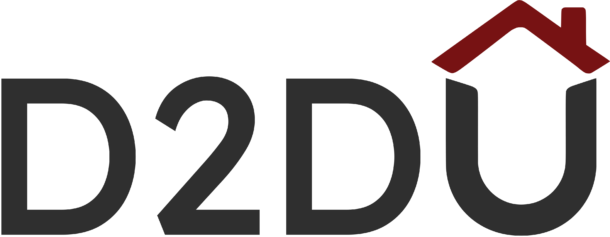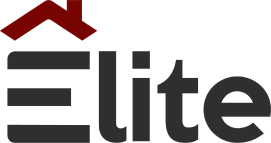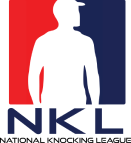Speaker 1: (00:02)
Bill, Can I help you?
Speaker2: Hey listen up, I’m bringing you the best content to ever exist in the door to door industry from sales leadership, recruiting, impersonal development.
Speaker 1:
Why would I need that?
Speaker 2:
Because never before have we been able to collaborate with the top experts in their industries, sharing their secrets and techniques and what makes them the best.
Speaker 1: Wait, who? Who are you?
Speaker 2:
I’m your host. Sam Taggart, creator of the D2D experts in D2Dcon. Is there a place we can sit down?
Speaker 1:
We’ll come on him.
Speaker 3:
Speaker 3: (00:31)
As the leading distributor of structural pest control, Univar, offers its training services and an arsenal of products to help you grow. Our 80 years of experience in industry, leading resources, customer service offers unmatched opportunities for your company to succeed. Visit Atlas web.com or call (800) 888-4897
Speaker 2:
Hey Everybody. My name is Sam Taggart, your host with the D2D podcast. And I’m here with Andy Bindea. He is the founder of Sigora solar and they have now started as to penetrate Haiti and Zambia.
So they have multiple international solar companies, which is a really unique topic we’ll be discussing today. Um, he literally is from Romania, traveled and immigrated here to America in 2006 and literally all he had is a backpack.
So we’re going to dive into a story because I think it’s one of the most fascinating serial entrepreneur stories now. He runs over a multimillion dollar company and it’s, it’s really cool for me to find people that literally bootstrapped from nothing and had all the odds against them, being not from a family of wealth, not from the even knowing a soul here, and building something really impactful and his brought energy to over how many people now in Haiti,
Speaker 3:
We’re above 20,000
Speakerr2:
Over 20,000 people in Haiti that never even saw light in their homes before.
Speaker 3: (02:00)
Literally his brought the light to homes all over the world. And it’s super fun to find people that are really making great money, but also making a huge impact and making a difference in our world. So if you’re watching this and you’re in solar, this is a really fascinating thing. So I’d for sure listen to this and then like this, if you’re, if you’re all about solar or Haiti and saving the planet. So I’m super excited to have you on the show, Andy. So thanks for taking your time out of your busy day. I know this is probably busy and it’s already evening, so it’s good. It’s calm and quiet, calm and quiet. And we’re just hungry waiting for dinner after this. Right. So Andy, Andy, tell us a little bit about how you got first off, like what inspired you to come to America? Let’s just start back at this whole transition of like, I’m living in Romania and America. Sounds cool. Was it just like watching a, an American movie or something? I, I’m curious how that whole started. No, it’s actually, it was a little easier than that. Uh, I had a failed attempt at a recycling
Speaker 4: (03:00)
company and after about nine grueling months of trying to raise capital for equipment, I decided that, hey, uh, this is not really going in the right direction, not a lot of traction here. So I packed all my stuff in a backpack and a went to Alaska. Um, now look, uh, at the end of the day, uh, you come to America and uh, of course things are not what they seem to be, especially if you go I to Alaska. Alaska is a little bit different where the people are 48. Yeah, we’re the more deer than people. Um, but I’m okay, it’s been an absolutely amazing journey coming here. And uh, uh, I’ve gone through the crazy jobs, washing toilets, being the cable guy, being a three climber. Uh, luckily I had some really, really amazing people in my life that supported me and helped me throughout this journey. And eventually I was able to start a, the solar energy company from, um, well actually from the leftovers of a community college scholarship here in Charlottesville, Virginia, Richmond, Virginia Community College.
Speaker 4: (04:13)
Really? Yeah. Some people, you know, drop out of Harvard and Stanford. I dropped out of community college. So you took your scholarship money. Yeah. So you were a college student essentially, and you said, okay, I’m going to go to college and study. You were studying engineering. Engineering. Okay. And you’re like, screw this. I’ve got some extra capital. I’m an entrepreneur at heart. Let’s try something new. Or when people, when people, when people tell the stories of how things happen, they tend to mystify things, know things do not happen. That clean, I was curious is like everything is a stumble. Everything is a, is that just, um, you do this and it hopes it has the right impact and it has the right to outcome. Now it was as simple as, um, I had an opportunity to pick up a solar contract that was very good with the technical, uh, projects and I picked up the, the, the contract and um, I did good with it.
Speaker 4: (05:14)
I didn’t know anything about solar whatsoever. Uh, and um, um, then I picked up another contract and another contract after that. And um, it was as simple as, hey, I had 6,000, $300, uh, in the scholarship. Uh, and about three or left after I bought all the books and everything else I needed for that semester. And I bought a white Honda and a 24 foot ladder. And, uh, you know, the rest is history. We started hiring people and, um, treated our customers right and provide them value and didn’t care about anything else to be real honest. So it’s kind of just building foundation off of good customer service and getting the job done right. And then it’s grown to this don’t fall off the roof three to the customer. Right. And collect the last paycheck. So important. But that’s, that sounds like it hit a soft spot.
Speaker 4: (06:14)
Are there a few times that you went through and didn’t get paid? Like you were supposed to look at it? I told you yesterday as I shared with the sales team, uh, in the beginning it’s like, you know, uh, asking somebody for money was very uncomfortable. Uh, it was never like I started shaking every time I needed to ask a customer for to pay us for the work that we actually performed. Um, so, you know, um, it wasn’t until one of my mentors explained to me that, hey, Andy, you are, um, providing a value to your customers and this is the way they are paying for that value. It’s a normal exchange and it’s, you have done your job now they have to do theirs. But, um, yeah, for, for several years after we started in 2011, almost seven years ago now, um, I, I’ve had, uh, issues with, with just asking customers for money and you know, a lot of the times customer, you know, they don’t want to pay until the, this happens.
Speaker 4: (07:27)
And this happens in tried to delay things and some of them, um, unreasonable. And, uh, it wasn’t until two, three years into, into the business that I got to really, really comfortable with asking for money. And, uh, it was because, um, you know, we have a team that we have to provide. Yeah. And they have to provide for their families. And these are not, this is not just a fly by operation. This isn’t a real business right now. There’s so almost 70 fulltime people that work here, another 60, 70 subcontractors. These people depend on a paycheck. And to be able to provide those paycheck paychecks and, you know, making sure they actually clear the bank, we need money in the bank accounts. So, um, it became part of business, but it was very, very uncomfortable in the beginning. Very, very uncomfortable. What are some of the other roadblocks that you may be ran into as you kind of built your business scale that ground, but there’s some other like challenges that you’ve, you know, you kind of encountered that were pivotal in your journey?
Speaker 4: (08:35)
I think, uh, I think, look, one of the really, really big elements I learned and of course, I mean, um, you’re kind enough to have me on your podcast here, but, uh, I’m by no means an expert in anything whatsoever. Uh, I’m still learning and I hope to continue be learning for the rest of my life. Uh, and, uh, look, uh, I’ve learned a lot of lessons and a lot of them are in a very, very painful and costly manner. And I think one of the biggest and most painful and most costly lessons I’ve learned has to do with people, uh, and leadership, uh, earned versus a assumed, so to speak. Uh, this, this difference between a boss and a leader. And, uh, this difference between just or during somebody to do something versus knowing in the back of your head that people will not do something they don’t want to do, but there are other having to convince them that they want to do a certain task or they, you cannot shove your vision down people’s throat. Yeah. I have to buy into it. And it’s very, very important that they do.
Speaker 3: (09:58)
And I think that’s one of the biggest issues we deal with in this industry is like, we have our vision and then we’re trying to convince all of our other people to go work and to get on the doors and to go and recruit and it go do what they’re supposed to. Just the daily act simple activity that in our brains it’s like, why wouldn’t you just do this and you’ll make more money. And for some reason it seems to be one of the most difficult things to help inspire our people to act. And so for you, what are some of the things that you maybe have learned through trial and error to help become the leader versus the is the boss?
Speaker 4: (10:34)
Okay, well look and there it hasn’t been a lot of trial and error and it’s, it’s, uh, it’s very important for me to mention that Segora solar in Virginia. I don’t run this company anymore. We have an incredibly competency, your Logan Landry that runs the company and he is the leader of the management team. We have a chief operating officer. We have an amazing leadership team here. And, uh, we’ve, uh, under his leadership, uh, we were able to restructure the entire organization and into something that’s a much, much more scalable organization, uh, and then put procedures around, um, these, these thoughts and ideas. But, uh, it’s very important to mention that, hey, what starts as a thought and an idea can become actually a procedure. So to go, to go back to lessons learned on, um, you know, leadership is a couple of things. Um, in sales is clearly the backbone of the, of the, the growth vehicle. Uh, and, uh, I underestimated for a very long time how mentally challenging, uh, the, the, the, the, the Traub offers sales individual,
Speaker 5: (11:58)
uh,
Speaker 4: (11:59)
it is, and how packs and go on an emotional level like it is. And I thought that when I was running the entire sales team of the company of one and then hired more salespeople and so on and so forth, I did all the sales myself and I thought it was perhaps
Speaker 5: (12:18)
okay
Speaker 4: (12:18)
a deficiency. I had net, you get nervous, you get nervous before asking good for, for a customer to sign a contract before, before we’re putting, putting a paper in front of, in front of them and so on and so forth. I thought it was a problem with me and it was only later on did I realized that, hey, hold on, everybody is struggling with, with,
Speaker 5: (12:40)
okay,
Speaker 4: (12:40)
the mental part, the failure, the connected. Right.
Speaker 5: (12:47)
Hello.
Speaker 3: (12:48)
Well keep going. We’ve got the audio. Just keep going. So, um,
Speaker 4: (12:53)
it was only until later on that I fully understood that this is part of the job and it’s normal and it should be addressed.
Speaker 5: (13:02)
Okay.
Speaker 4: (13:03)
And it should be addressed in a structured and very organized manner. And, um, you know, it begins with the simplest of, of things is talking to, to, to your team about your challenges when you started out explaining to people that, hey, if it feels,
Speaker 3: (13:26)
um, you know,
Speaker 4: (13:28)
a failure will bring you down entirely the whole feel that way because it’s normal. It’s not that you failed or not, it’s what you do after you fail.
Speaker 3: (13:38)
And I think a lot of people as leaders, they fake, they, they almost try to mask some of the problems and challenges and feelings that they actually sometimes have to pull out of this closet of like, oh, when I first got into sales, like I did say I had those same things. You know what I mean? Like I went through the same hardships, the same challenges, and being vulnerable first with your team, in my opinion, it helps open up and show them like your true authenticity of a leader. And I think that’s one of the, one of the key principles of leadership. Um, and from what I’m picking up, it’s just being able to kind of guide your people by being real and just raw with them. And speaking, speaking to the, some of the difficult aspects of this job, I think, look, um,
Speaker 5: (14:27)
okay.
Speaker 4: (14:27)
At the end of the day, authenticity is something that we really crave in our society today.
Speaker 5: (14:33)
Uh,
Speaker 4: (14:34)
everything tends to be very manicured. And then doctor [inaudible], we would really crave authenticity. So aside from the, you know, society at large aspect of authenticity in a, in a company, especially smaller companies, it’s, it’s, it’s critical to, to motivate an educate younger managers. It’s a critical to motivate and educate, uh, sales staff at the end of the day. Because if you can’t get past the mental block off being rejected, you’re not going to make it. So a prospect that otherwise could turn into an amazing saleswoman or salesman, um, you lose them because they just hit this wall. And the easiest way for them to get past this wall is to be able to bond with somebody that has managed to get on the other side.
Speaker 3: (15:30)
Hundred percent. Yeah, 100%. And I think the pitfall that a lot of leaders fall into is simply
Speaker 5: (15:39)
okay.
Speaker 3: (15:39)
They fear the bond. And I think a lot of it has to do with what we were talking about this earlier, the insecurity of, well, if I, if I open up too much, then maybe they’ll, they won’t look at me as a leader. If I, if I try to connect or try to bond, then I like almost become vulnerable to, to attack almost. Like, it’s almost like everybody’s against me as the leader and, and, and, and, and, and that’s kind of the next thing that we want to talk about was kind of this lonely place if feels as a leader. And that’s probably one of the reasons we have this insecurity to us is it’s a lonely place. Um, so like speak to that, I know you mentioned like how lonely sometimes leadership can be and I think a lot of people underestimate the, like what entrepreneurs and what owners have to go through. You know what I mean? It’s, I, I think, uh,
Speaker 4: (16:32)
I think the thinks throughout this amazing journey in the past seven years with, with, you know, Segura solar until 2014 and then Sigora international and also go to Haiti. And I would say Laura Zambia, what’d, it just becomes very, very, um, clear throughout my interactions with my team throughout my interactions with fellow entrepreneurs, uh, through, throughout everything that I do. Is that sorry, that hey, um, people want to be comfortable.
Speaker 5: (17:08)
Okay.
Speaker 4: (17:08)
They want to feel comfortable and, uh, a leader that, uh, you know, just, you can’t broadcast your problems. You can, uh, you have to internalize and, and uh, and hide them and put a smile on your face and get the positive attitude. And uh, is incredibly difficult to do when you’re running out of money. When you’re, when, uh, some of your staff is not performing when, when things just don’t go the way you want them to go is, is, is just incredibly difficult to just put a smile on your face, keep chugging along. And the, the, the, the majority of people that I have talked to them, it’s a, they, every single entrepreneur has sleepless night. Every single, uh, woman and men that I’ve talked to that, that have started businesses or are passionately and, and uh, in an engaged men are running businesses have sleepless nights where they clench their fist and
Speaker 3: (18:29)
crying anger. And, uh, it’s true. I mean, and I think a lot of people never see that they did that, you know, like in, and if you’re listening to this or are watching this, um, I think you should probably show some appreciation and some compassion for whatever leader leads you. Because I think somebody that has never been in a leadership role or an entrepreneur or I’m in that position, I think they fail to recognize, like they lose sleep over not being able to pay you, not being able to see you succeed. You know? Um, there’s just moments where it’s like, no,
Speaker 4: (19:09)
I just want to like punch a wall and look. I mean, the reality is that it’s very important to, to delineate the difference here between bosses and leaders. Bosses don’t lose sleep leaders, bosses go home at six o’clock and all is left behind. And uh, the, the problems of the work, they are left at work and leaders they stress about, am I gonna make payroll? They stress about, hey, is that investment going to come through? Hey, am I, am I going to be able to hire this top performer that I really want on my team? Uh, am I going to lose a couple of people because I lost this project? And it’s like, and, and, um, it’s not just entrepreneurs, it’s also every single leader at every single level of management that is just involved in the business. They lose sleep over it and they get stressed. And the s the cardinal part of the stress that she’s through the landless and just keeps going and going and going and going because there’s always something to stress them and worry
Speaker 3: (20:20)
about. Yeah, I think, I think honestly like a leader, um, eh, the difference between a boss and a leader in my opinion, is if a boss was fired or boss quit or boss left, it’s very easily replaced. Second position filled a leader. It’s like if they didn’t show up and they didn’t perform and they didn’t and they were to move or go, that whole organization would crumble or that branch or that position crumbles because it’s kind of like there’s a difference between just filling a position and actually creating a movement, creating waves, I guess throughout your company. And I think so many people, you know, a lot of people were prepping for the summer, the high season. A lot of people are trying to build teams and recruit and I think they fail to ask like, am I really doing this to be the boss and just feel this power of vi can crack the whip or am I doing this to really lead and, and, and, and provide extreme value for my people that I’m actually leading.
Speaker 4: (21:24)
And I think, I think it’s very important that that people, before they look on the outside, uh, did look on the inside 100%. What are my motivations for doing this and my power hungry? Do I actually want to make a meaningful impact though? Am I actually just going off their money? Am I actually, why do I do what I do? But not just ask yourself the question, Oh, why do I do what I do? Well, because it matters and blah, blah, blah. No, no, no, no, no. Why, what basic elemental human emotion does this particular activity, um, instill in you and arouse in you that allows you to continue to move forward. And, um, also I think it’s, it’s, it’s, um, it’s very important and, and you know, again, trial and error and um, you, you, you, you learn to, to, to care more. And earlier today you talked about the empathy.
Speaker 4: (22:30)
Uh, I mean it’s, it’s very difficult to be empathetic when things are not going well. When things are going well and everything is smooth. Everything is easy. Relationships with employees, relationships with customers and the relationships with investment, everything is easy. When things are going good, when things are going bad, when you have to cut 30% of your staff like we did in 2016 here at I solar. When when you have to cut people’s pay, when you have to for a lot of people, when you have to, when things are going bad, that’s when the, that’s when the empathy and the understanding and the, hey, we have to figure out a solution that’s good for everybody comes in. And I think the lessons that I learned from the hardships are of course more painful and most costly, but there are a whole lot more meaningful.
Speaker 3: (23:32)
Yeah. Well I, this has been awesome. I want to kind of shift gears off the leadership topic and I want to dive into some more storytelling because I feel like you have a lot of good stories in you. Um, we’re going to take a quick pause real quick. Um, all right. So a couple of the questions that I have did, I just feel like you have a lot of crazy stories from running segora Haiti that, you know, you shared kind of in January of just, you know, crazy employee’s stories, trucks falling off. You know what I mean? Like you just have all these random things that have happened that you’re just like, man, she has happened. It’s like probably moments right there. It’s kind of like, wait, what, what just happened? Like, I feel like you have a lot of those dealing with international employees, you know, dealing with creating new markets for random people and bringing electricity to people that had never really lived with electricity. That’s gotta be kind of a cool thing. But kind of tell us a couple of things that really were, um, well I’m asked specifics, so like what’s been the craziest a story running a business that you were just like, nobody would believe actually happened?
Speaker 4: (24:44)
I don’t have any stories that nobody would believe, but at the same time, my threshold is probably a little bit, but look, I mean, on the, on the, on the positive side, um, look, in 2014, we decided to, to, to start this electrification efforts for, for Haiti, which is a country, uh, and, uh, the Caribbean, uh, that has about 10% of its population electrified and nobody in the country has power 24, seven. And you want to hear something that’s really crazy and unbelievable. It’s like there’s 1.3 billion people around the world that do not have power. 24, seven. Just imagine your life without power. Like imagine like if you’d like, we lost power here in Virginia for four days because of the nor eastern. And, um, everybody freaked out. Uh, but there’s 1.3 billion people that have never had power and just go about their lives without power and access to information and so on and so forth.
Speaker 4: (25:52)
So that’s really, really, really crazy. So we really wanted to do something about it and we realize that, hey, it has to be economically sustainable initiative. So what we did basically is we started a Haiti’s first private utility company. Uh, and it’s crazy, particularly because we’re a solar company in for Jason is because a lot of reasons. First off, we’re a startup utility company, which startup and utility company just don’t seem to make, just don’t mix very well. Uh, and the second is started by a, a guided, you know, uh, Aranda solar energy business, which there is always this perceived, um, epic between solar companies in utility companies. Oh. And I think that’s very, very interesting. It’s like we just, just, just this perceived hate between all of us at the end of the day, he was like, nobody really cares, to be real honest. There just, uh, businesses that are no longer, you know, startups.
Speaker 4: (27:03)
So adapting their business model is very, very difficult. Uh, so, um, and I can understand a few things from the perspective of a utility company, you know, and I was like, and some are soft, some of my friends telling me, and you guys are not that utility company really well, we have bucket trucks, we have the power grid, we have exclusive to any five year concessions and we don’t yet allow net metering, I think. I mean, so say your deal. So it’s like what is he to yeah, exactly. Yeah. So what was it like bringing power to that many people? Like what were some of the reactions from people? I think, I think it was, uh, first, first and foremost, there was a very big difference between what I personally perceive that journey to look like, particularly on how long it’s gonna take and how much it’s going to cost.
Speaker 4: (28:06)
Uh, in short, I thought my pilot project was going to be done in three months. And, uh, here I am four years later and I’m still missing one wind turbine. Uh, yeah. Uh, however it’s been an absolutely amazing journey. And, uh, right now we have 4,000 active paying accounts, um, businesses and homes, meaning that there’s about 20,000 people, 20,000 people that have electricity, 24, seven, uh, and they actually pay for this electricity. So it’s not a donation, it’s a value for value exchange. And the most amazing part of this whole journey has been, uh, people’s, uh, the dedication of our team in Haiti to this, to this cause and to this vision and the extent to which people just took it upon themselves to, to push forward this vision, not just to benefit themselves, but to benefit their neighbors, to benefit the local clinic in town, to benefit their friends and families. And then we got our first thousand connections in one grade and then we went to the next one, uh, and our technicians moved over and began training new technicians. And, um, it’s been absolutely amazing to see this. So what’s your, what’s your longterm goal? What’s your vision with this?
Speaker 5: (29:43)
I wanna
Speaker 4: (29:45)
I mean, ultimately look, uh,
Speaker 4: (29:49)
we, we do things because, uh, they make us feel a certain way. Uh, they either make us feel less guilty about our privilege, uh, or they make us feel, it makes us feel good that the, we put a smile on someone’s face. But, uh, ultimately every single decision that we make, it’s, is to a certain extent, selfish. We are looking at ourselves when we make decisions in whoever says they don’t be yes, because we are at the center, I’ll fall rolling universes and um, I take a great deal of uh, joy and pleasure from a number one proving people wrong. Uh, and number two, building things that last and if I can do that while proving people wrong, such a good feeling. Yeah. So it happens that there are plenty of individuals to prove her wrong, to prove wrong, that yes, you can build a sustainable electrification model for frontier markets.
Speaker 4: (30:57)
Uh, yes, you can actually build a EBD positive business, which two off our grades already, our Ebitda positive in the poorest region of the poorest country in the western hemisphere. That’s insane. But [inaudible] has ranked by the World Bank as number 187 easiest place to do business. Right? Very. There’s only five places that are harder to do business then in Haiti. And it doesn’t say a lot about like, I don’t want to bash anybody or anything like that. Is it just, it’s all bureaucracy, it’s procedures and things are changing and they’re getting better. But as long way to go. Wow. So if you could give, and just to kind of wrap this podcast up, um, if you could give one piece of advice to an up and coming entrepreneur or maybe somebody that’s been kind of hesitant to say, yeah, I’m going to take the plunge and start and take action and, and, and do it.
Speaker 4: (31:56)
You know, like a lot of times I swear we have these big dreams. We have these goals or aspirations in life and we find ourselves five years later doing the same stuff. Right? So what, I guess what piece of advice would you give that up and coming entrepreneur, um, now being what you’ve done and what you’ve been through? Like what would you tell him? Well, um, in the, in the words of the great American philosopher, Nike, just do it. I love it. So, um, just do it. Just do it. Just do it. And surround yourself with people that are better than you in every imaginable aspect. People that are smarter than you, people that are more skilled than you are. And do not be afraid to surround yourself with people that are better than you. And uh, it’s, it’s said so often that it’s a cliche and one, once things become a cliche, it, they lose meaning as like, oh, deem is everything. I was like, Pema really is everything businesses, what’s a business? It’s a piece of paper that has legal baggings its certificate of incorporation, nothing more. It’s people. At the end of the day, people succeed. People fail. Businesses don’t succeed. Them. Fail is people that succeed and fail. So number one, get off your ass and do it. And number two, surround yourself with people that are better than you.
Speaker 3: (33:35)
I love that. So if you’re listening to this, I hope you take that to heart and, and reflect on that for a minute and just be like one who are the people that are surrounding me and to really am I just being lazy and scared and my is my, I had my own mental blocks stopping me from taking any action. Well look, you know, I’ll, I’ll, I’ll, I’ll, I’ll shut up after this point. I love it. No, I think we’re all getting some gold from the, uh, look, the reality is that
Speaker 4: (34:08)
people have different tolerances for, for, for, for risk throughout their lives. The time to, the best time to start a business is not when you have a mortgage and for children and, and, uh, three car payments and so on and so forth. That’s not the best time to take a wild risk. The best time to take wild risk is after you drop out of college, after you graduate high school, after you go out there and you work for a couple of years, you go travel the world, you go experience and discover yourself a little bit better and what makes you happy and what makes you tick. Um, don’t wait for it. You know, it’s, it’s, I use this a lot with my team and, and, and it’s, it’s kind of become a little bit of a, you know, a little bit of a bizarre metaphor. Doritos on the chest is like, don’t be that guy that is sitting in front of the TV 10 years from present and saying, oh, I had this idea
Speaker 3: (35:18)
and then why they should do anything about it. You’re sitting there with the readers on your chest. I love that because you haven’t taken action. The guy that the chest
Speaker 4: (35:28)
never will be a perfect time. It will be always incredibly scary, terrifying, and and, and, and, and, but then at the end of the day, figure out what your product is. Figure out where you’re going and, and treat your, these are the three pillars of businesses as I, as I see them, it’s your, your customers, your team and your investors. You make sure all these three are taken care of and nothing else really matters. All of the, all the rest is manageable. All of it is let’s take care of your customers, take care of your team, take care of your investors. Love it. I love it.
Speaker 3: (36:15)
Well thank you so much Andy for being on the show. Thank you very much for this. This was fun. Like, I think it’s been fun kind of seeing cigar on an intimate level. You know, I’ve been able to work with you guys for the last few months, and, um, it’s been a pleasure to be able to interview you now. Um, but yeah, if you’re listening to this, share this,
Speaker 6: (36:32)
like this, and we’ll, we’ll catch on next episode. Thanks Andy. Thank you. Thank you for having me, Sam. Thank you. Thank you.























